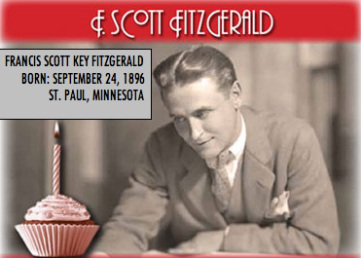We started the Silver Birch Press blog on June 24, 2012 — and today celebrate our fifth anniversary. Thank you to our community of contributors, readers, and nearly 10,000 followers for making the Silver Birch Press blog part of your daily routine. Cheers!
For a trip down memory lane, below is a replay of our first post (June 24, 2012).

To me, The Great Gatsby by F. Scott Fitzgerald is the quintessential summer book. It chronicles the hot months of 1922, when the Great War was over and the Great Depression was yet to come. The 1920s were a blissful time when possibilities seemed limitless — and everyone seemed to be having fun (despite, or perhaps because of, Prohibition). These were the years when the cocktail was borne (to make the booze go farther), when women bobbed their hair and danced with abandon. It was The Jazz Age, as Fitzgerald called it — a name that stuck.
Every time I pick up The Great Gatsby — and I’ve read the book perhaps a dozen times — I am drawn in and enraptured by the book’s poetry and romance. To quote the song Kiplinger plays: In the morning, In the evening, ain’t we got fun. Yes, Gatsby is great fun — even with its sad ending. The story seems fresh and real, even though it took place 90 years ago.
I believe, though, that required high school reading of Gatsby is ill advised. Teens are too young to appreciate the longing and loss portrayed in the book — which is much better read after you’ve suffered some major hard knocks out in the big, bad world.
We all have a Gatsby in us — a hopeless romantic, an impossible dreamer who tries to hang onto the inner spark that makes life worth living. So pour yourself a lemonade (or something stronger), plop yourself in a lawn chaise, and dive into the greatest novel of all time. Happy Summer!











